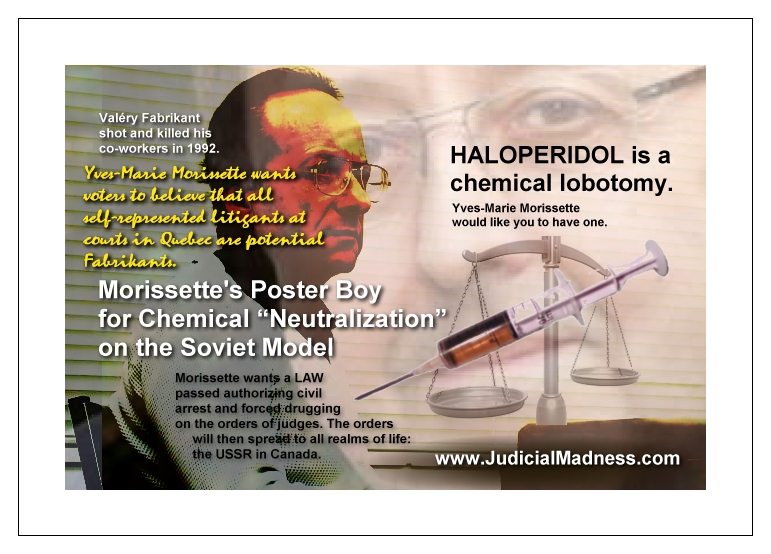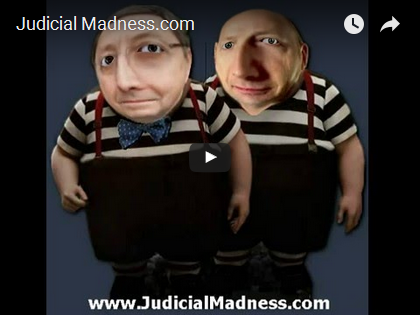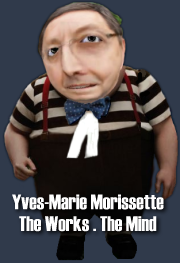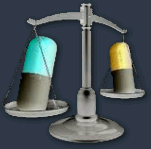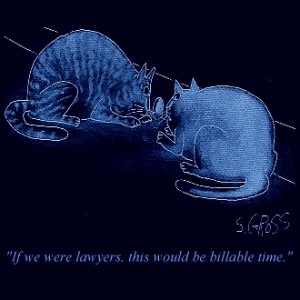Quarrelsomeness / Querulousness (English)
Quarrelsomeness; Querulousness; Querulous; “Querulent”1. “Querulous“: The quality of being given to complaining 2. “Quarrelsomeness“: An alleged mental illness or symptomatic personality disorder of self-represented litigants (pro-se counsel; pro-se pleader) in the Quebec legal system. “Querulousness” would be another word equivalent to the word used in English in the Quebec Code of Civil Procedure and in the practice rules of Quebec Superior Court and the Quebec Court of Appeal. The power of these courts to make practice rules regarding “Quarrelsomeness” is highly debatable, as it is not a function of the inherent power of a “court” of law to use its declaratory powers to “diagnose” a litigant as being psychiatrically disordered. Judges have no psychiatric qualifications and no licence to practice psychiatry. Moreover, it is well known that even qualified medical personnel cannot necessarily diagnose a particular illness, whether physical or mental, with respect to any person, without extensive formal testing and principled medical analysis. For example, a person who is diabetic may be wrongly assumed by a non-medical observer to be an alcoholic, when this is not the case. In the case of pro se litigants, how can a court of law, of its own volition, simply decide that a person is mentally ill, according to a “list” of alleged “symptoms”, while completely ignoring and discounting numerous other factors including socio-cultural factors? It is simply not a function of a court of law to practice psychoanalysis and medical diagnoses. It is a grave danger to civilized society to allow them to purport to do so. The assumption of such a power is well outside the law, being well outside the functions of a court of law. Would you expect a psychiatrist with no legal qualifications to sit in judgement on your law suit? Then why would a judge with no psychiatric qualifications be allowed to “diagnose” your state of mental health?  And moreover, put it on the record and publicly declare you mentally disordered, so that everyone, including your employer can find out that you have been “declared” “crazy” just by checking Google. In the case of “judicial declarations of madness” by which a judge purports to declare a litigant “quarrelsome“, the real meaning is that the judge has claimed to declare that a litigant exhibits a symptom of paranoid schizophrenia. Do you really think that a judge with no psychiatric qualifications, and in the absence of submission by the litigant to extensive psychiatric evaluation, has the “power” to “declare” someone a “paranoid schizophrenic”? Moreover, a psychiatrist with no training in law, would have to accept on hearsay from a third party that your litigation, your manner of handling your own legal procedures, and the merits of your case are frivolous or vexatious in the first place, in order to psychiatrically “diagnose” you as having so-called “legal quarrelsomeness”, an imaginary mental illness invented by a non-psychiatrist, Yves-Marie Morissette. If a psychiatrist must accept someone else’s word for the validity of your legal proceedings, then his own “diagnosis” of you would not be based on principled medical testing under his control and supervision. It would be based on hearsay. A psychiatrist would have to assume that a particular court is not politically motivated to declare you “crazy” by misrepresenting the merits of your litigation. “Qarrelsomeness” or “Querulousness” was first “identified” in 1984 by lawyer Yves-Marie Morissette (who has no psychiatric qualifications). 3. “Querulousness“: Under Morissette’s guidance, the Quebec government has moved systematically in the direction of adding “querulousness” as an alleged mental illness to the Quebec Code of Civil Procedure, while allowing judges, also with no psychiatric qualifications, to “declare” pro-se pleaders “mentally ill” from the bench, without any prior professional psychiatric evaluation. The ultimate intent according to writings of Morissette is to authorize judges to order the arrest and forced drugging of pro-se pleaders with crippling neuroleptics such as haloperidol (haldol), used by the Soviets in their KGB-controlled political hospitals for dissidents. Neuroleptics cause brain damage and are reported to function as a form of torture. 4. In French, the word “quérulent” is a noun referring to the person alleged to be mentally ill with the alleged disease of “quérulence” (also French). There is no “noun” in English to designate an individual said to be given to complaining. Therefore, in order to be able to translate the French noun “quérulent“, a new English noun “querulent“, meaning the person alleged to be given to complaining, or alleged to be mentally ill, is hereby innovated. |
